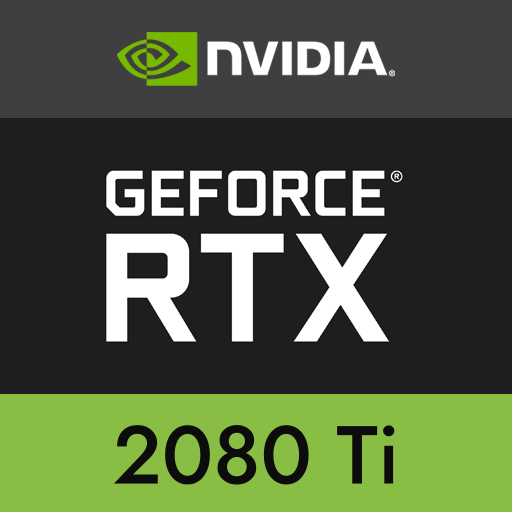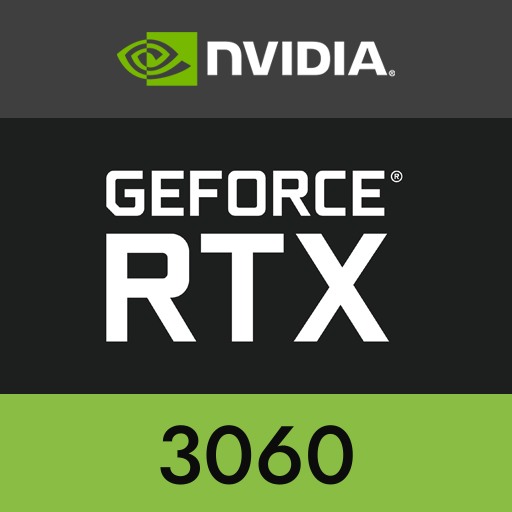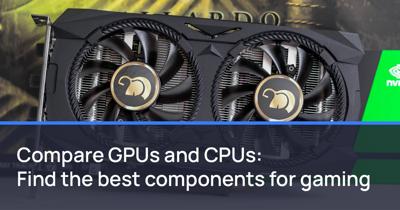GeForce RTX 2080 Ti vs GeForce RTX 3060 benchmarks
For gaming, the GeForce RTX 2080 Ti graphics card is better than the GeForce RTX 3060 in our tests.
The GeForce RTX 2080 Ti has a slightly higher core clock speed. The core clock speed (or base speed) is the frequency at which the GPU core runs. This metric makes sense when comparing GPUs of a similar architecture or generation. Despite this, the GeForce RTX 3060 has a slightly higher boost clock speed. The boost clock speed is the frequency that the GPU core can reach if the temperature is low enough. The allows for higher performance in certain scenarios.
As stated by the manufacturer, the GeForce RTX 3060 has slightly more memory with 12 GiB of memory compared to 11 GiB. If you're planning at playing games at high resolutions with high-quality textures, you will need a lot of memory.
In addition, the GeForce RTX 3060 has a significantly lower TDP at 170 W when compared to the GeForce RTX 2080 Ti at 250 W. TDP (Thermal Design Power) measures total heat output from the chip.
In terms of raw gaming performance in our GPU benchmark, the GeForce RTX 2080 Ti is better than the GeForce RTX 3060.





















No comments yet! Be the first to leave a comment using the form below.